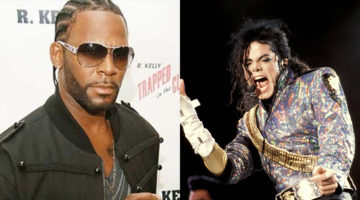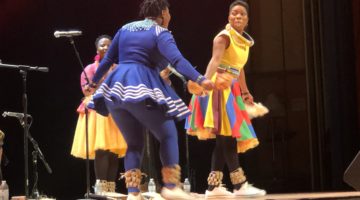I am a survivor of domestic violence.
There, I said it. No, I am not ashamed to admit it. No, I am not a statistic. No, I am no longer a victim. Did I walk out of my abusive relationship stronger and empowered to make a change? Absolutely.
When people think of the month of February, along with Black History Month, many people often think of Valentine’s Day. I mean, who wouldn’t? Valentine’s Day is supposed to be a special day of love between significant others. For many couples, this is a day full of happiness and affection. This is the perfect day to show your significant other just how much you love them.
But what is love, exactly? What comes to mind when you think of love? The answer may be pretty obvious, so I’ll go ahead and tell you what it’s not – it’s not control, manipulation, sexual coercion, physical abuse, calling you every name under the sun, isolation or anything else that may hurt you. But you probably knew that, right?
The unfortunate reality is, not every person in a relationship realizes that these things do not constitute love, especially teenagers. Once you’re in an abusive relationship, you start to rationalize the actions of your partner. “But he/she loves me.” “He/she didn’t mean it.” “He/she was just stressed out.” “I shouldn’t have made him/her angry.” “I deserved it.” “If I just change, our relationship will be better.”
I know this. This was my reality for almost two years. I lived it constantly.
I told myself those exact same things to rationalize everything in my head and make it seem like my partner really did love me. To make a long story short, my partner was abusive in every stretch of the definition – he was physically, mentally, emotionally, verbally and, at times, sexually abusive. As this was my first serious relationship and my first real love (or so I thought), I was obsessed with being the “perfect” girlfriend. I slowly realized that I had to be the “perfect” girlfriend to him or else I’d be sorry for it later. To say that my life became a version of hell would be a complete understatement. I lived my life in constant fear, isolation and control. But it was okay, because he loved me right? And after all, his anger was my fault. I just had to be “perfect,” and then everything would be okay. As someone in my late teens at the time, my thought process while in this relationship completely ruined my mental and even physical health. Valentine’s Day was never a day of love for me while I was in that relationship. It was a day of pain.
In August of 2015, I finally snapped. My mind finally started screaming at me the words my friends had been telling me for a long time: “THIS ISN’T LOVE, ALANA! THIS IS ABUSE!” My partner had ruined the last parts of my teenage years, and he was not about to ruin my twenties. My friends came and packed me up, moved me out of the apartment I shared with him and I found a new place to stay. I was finally free.
But the thing is, I’m not here to throw a pity party. I don’t need pity, I need solutions. I want to help as many people as possible avoid similar realities I endured. I’m here to help spread awareness on an issue that is closer to home than you may think.
February is Teen Dating Violence Awareness Month. According to loveisrespect.org, “one in three adolescents in the U.S. is a victim of physical, sexual, emotional or verbal abuse from a dating partner.” If you were to line up 100 teenage UNR students, the probability of about 33 of them having experience in an abusive relationship is very high. These are our friends, our siblings, our fraternity and sorority brothers and sisters, our classmates, our peers, our co-workers. The list goes on. I guarantee that you likely know at least one person who has experienced domestic violence.
And that’s not okay. It will never be okay. Your teenage years are meant to be full of amazing experiences that you will cherish for the rest of your life, not pain and a life of control, manipulation and abuse.
So what do we do about it? We educate ourselves and change it.
The lack of awareness around teen dating violence is a problem in itself. Among the adolescents who experience domestic violence, only 33 percent of them have ever told anyone about the abuse. Being aware and knowing the signs can help reduce that statistic. If you notice any of these signs* in your relationship or in the relationship of someone you know, it may constitute an abusive relationship:
· Checking cell phones, emails or social networks without permission
· Extreme jealousy or insecurity
· Constant belittling or put-downs
· Explosive temper
· Isolation from family and friends
· Making false accusations
· Erratic mood swings
· Physically inflicting pain or hurt in any way
· Possessiveness
· Telling someone what to do
·Repeatedly pressuring someone to have sex
*Descriptions of signs of abuse courtesy of breakthecycle.com.
We all have the power to make a difference. Becoming aware of the problem is a great first step in the right direction.
If you’re realizing similarities in your relationship, you are not a statistic either. I promise you that you are stronger than you realize, and that you are worth more than you feel. And you aren’t alone either. There are so many resources out there to help you, both locally and on the national level:
· The Nevada Network Against Domestic Violence – (775) 828-1115
· Committee to Aid Abused Women – (775) 329-4150
· Safe Embrace (emergency domestic violence shelter) – (775) 322-3466
· Reno Police Department – (775) 334-2121
· National Domestic Violence Hotline – (800) 799-SAFE
· National Teen Dating Abuse Hotline – (866) 331-9474
· The Trevor Project (crisis prevention lifeline for LGBTQ youth) – (866) 488-7386
· VictimConnect (national hotline for crime victims) – (855) 4-VICTIM
I am also here for you. Even if I don’t know you, I want to help. My contact information is at the end of this piece. Please never hesitate to reach out.
The bottom line is — love shouldn’t hurt. Abuse isn’t love. Always remember that.












